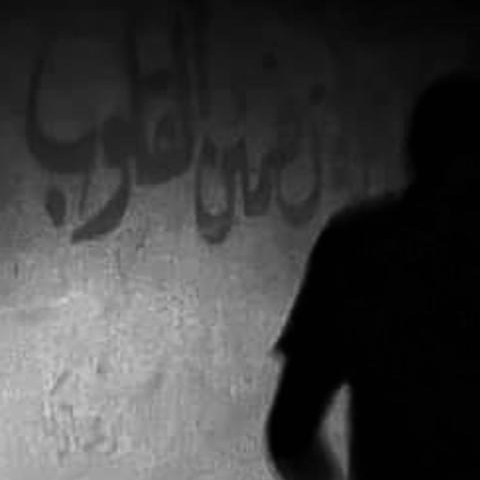Life in the Heart of Death: A Series on the Experiences of Mental Health Professionals under Attack – Story 21
Good morning… from the Shatie’ Camp (Camp of the Beach)/Gaza
I cannot believe I am seeing the light of day! I feel for my arm! My face!
I open my eyes and close them, then I open them again to ensure that what I am seeing is real.
Yes, this is my home that I love and belong to.
This is my window, and these are my family and here is my husband beside me.
We are alive and our house has not been destroyed over our heads yet… that same nightmare that hit our next door neighbors and they woke up to it in Heaven. We survived the terror that overwhelmed many community members in our area after being hysterically and chaotically targeted by the air strikes of the occupying force in the past forty eight hours! I wonder how any human being can be this monstrous and blood thirsty…
Throughout, I felt as if the house was falling into an abyss that was swallowing the house with us in it; that the walls were collapsing; and that I was trying to float over the rubble… but we get swallowed by the abyss before I could float!
Mohammad!
Mohammad, my beloved, my husband, whom I am terrified to sleep and loose… that I wake up one day without my support, without my love, without my husband.
Horror engulfs me if I am but a few centimeters away from him.
I am scared to be embroiled in a life potentially devoid of him.
The war prolongs and complicates my relationship with him. I connect to him more, and attach to him more, like a four-year-old kid. I want to hide in his pocket or disappear into him. I rush into his arms as the sound gets louder, and he hides me between his arms. He shuts my ears with his hands so I don’t hear scary sounds. He does not sleep until I sleep. He stays up. He smokes a lot. He gets insomnia. And after a few days, he crashes but wakes up to the sound of every explosion to check on me and everyone else. Then he closes his eyes, and I close my eyes that are filled with tears. Tears that won’t dry up. Tears that express nothing except bitter pain and helplessness.
I pray to God. God protect my home, husband, family, and all people. I place my hand on my weak, exhausted heart and recite verse and prayers for internal peace. My heart calms down for moments, but this serenity is internationally banned.
Flying here has different connotations from those expected in the rest of the world. Naval ships start bombing left and right; I hear the sounds of rockets flying over my head! Here, rockets don’t simply fall; they fly. Missiles fly, shrapnels fly, carnage flies, and the souls of children and young women fly to the sky before their dreams get to mature.
I wonder how their souls fly? What do they feel? Do they feel pain?!
People here comfort each other and say: “Don’t be scared. You will not hear the sound of the rocket that kills you because the rocket is faster than the sound it makes.”
In reality, this scares me more…
What does a martyr see in that first moment upon reaching the sky? Who talks to him? What do they tell him? How does he bid farewell to his family?
What does he do when he misses his family?
Here on earth we cry over his loss, does he cry over us?
Separation by death is bitter, and resuming life after that loss is even more bitter.
Iman Badah
Mental Health Specialist, UPA – Gaza, Palestine
November 20, 2023
To read all stories in the series: http://upaconnect.org/category/gaza2023
لقراءة السلسلة كاملة، تفقد الرابط أعلاه
حياة من قلب الموت: سلسلة عن تجارب اخصائيين نفسيين تحت القصف – القصة الحادية والعشرون
لا أصدق أنني أشاهد في هذه اللحظات ضوء النهار، اتلمس ذراعي! وجهي!
افتح عيناي واغلقهما واعاود فتحمها لأتأكد أن ما أراه حقيقة.
نعم هذا بيتي الذي أحب والذي إليه أنتمي.
هذه نافذتي، وهؤلاء أهلي وها هو زوجي بجانبي. نحن أحياء ولم يتهدم بيتنا فوق رؤوسنا بعد… هذا الكابوس الذي استيقظ عليه جيراننا ولكن في دار الخلد. لقد نجونا من الرعب الذي حل بالكثيرين من سكان منطقتنا التي تم استهدافها من قبل طائرات الاحتلال خلال الثمانية والأربعين ساعة الماضية بشكل هستيري وجنوني! اتساءل كيف يمكن للإنسان أن يكون وحشاً متعطشاً للدماء بهذا الشكل…
شعرت باستمرار أن البيت يسقط في حفرة عميقة تبتلعه وتبتلعنا معه، وأن الجدران تتهاوى، وأنني أحاول أن اطفو على سطح الركام ولكن قبل أن أطفو كان قد ابتلعنا!
محمد!
محمد حبيبي وزوجي الذي أصبحت أخاف أن أنام فأفقده فأستيقظ يوماً بلا سند، بلا حبيب، بلا زوج.
الذعر ينتابني بمجرد أن ابتعد عنه سنتيمترات. أخاف أن اتورط بعيش حياةٍ قد لايكون فيها. تتطول الحرب وتتأزم علاقتي به، ارتبط به أكثر، اتعلق به أكثر كطفلٍ في الرابعة من عمره. أريد الإختباء في جيبه أو الإختفاء فيه. أهرع الى ذراعيه كلما اشتد الصوت أكثر فيخبئني بينهما، ويضع يديه على أذنيّ كي لا أسمع الأصوات التي تخيفني. لا ينام قبل أن أنام. يسهر. يُدخن كثيراً. يصيبه الأرق. وبعد أيام يسقط في النوم ويستيقظ مع صوت كل انفجار ليطمئن أنني بخير والجميع بخير ثم يغمض عينيه، فأغمض عيناي التي تملؤها الدموع. الدموع التي لاتجف. ولكنها لا تعبر عن أي شيء سوى القهر وقلة الحيلة.
أناجي الله. اللهم أحفظ بيتي وزوجي وأهلي وجميع الناس. اضع يدي على قلبي الضعيف المتعب واردد آيات وأدعية السكينة. يهدأ قلبي للحظات، ولكن هذا الهدوء مُحرم دولياً.
الطيران هنا له معاني تختلف عن المعاني عند الآخرين من العالم. تبدأ الزوارق البحرية بالقصف يميناً وشمالاً اسمع صوت الصورايخ تطير فوق رأسي!
هنا الصواريخ لا تسقط فقط بل تطير. تطير القذائف وتطير الشظايا، وتطير الأشلاء، وتطير ارواح الأطفال والشابات الحالمات إلى السماء قبل أن تنضج أحلامهن.
اتساءل كيف تطير ارواحهن؟ بماذا يشعرون؟ هل يتألمون؟!
الناس هنا يطمئنون بعضهم البعض ويقولون:
“لاتخف. الصاروخ الذي سيقتلك لن تسمع صوته لأن سرعة انطلاق الصاروخ اسرع من صوته”
في الحقيقة هذا يخيفني اكثر…
ماذا يرى الشهيد في أول لحظة بعد صعود روحه الى السماء؟ من يتكلم معه؟ ماذا يقول له؟ كيف يودع ذويه؟
ماذا يفعل عندما يشتاق لأهله؟
نحن هنا نبكيه فهل يبكينا؟
الفراق مُر والاستمرار بعد الفراق أمر.
ايمان بدح
أخصائية نفسية في مؤسسة النداء الفلسطيني الموحد – غزة، فلسطين
٢٠ تشرين الثاني ٢٠٢٣
About Mental Health Professionals Under Attack
Dr. Dinah Ayna, a clinical psychologist and mental health consultant and a member of UPA’s International Advisory Board, has been supporting our Healing through Feeling team in Gaza since 2018 and continues to support those she can reach throughout this war. Two weeks into the recent aggression against Gaza, Dr. Ayna agreed with different mental health professionals inside and outside UPA on the importance of sharing their stories with the world. The professionals wrote their experiences in Arabic, and Dr. Ayna then edited, translated, and sent the stories back for final approval from the original authors before sharing. Authors also sent pictures that were edited to protect their identities and published, with approval, along with the stories. Nicknames were given to those who did not want to be identified.

